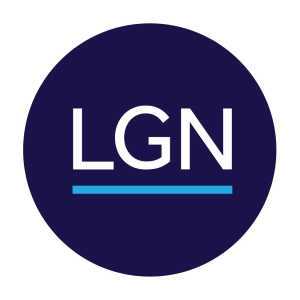CARES ACT:
The CARES Act created three benefits programs to provide and expand unemployment benefits:
- Pandemic Emergency Unemployment Compensation (PEUC)
Provides an additional 13 weeks after regular unemployment compensation benefits are exhausted. Ends 12/31/2020 - Pandemic Unemployment Assistance (PUA)
Extends benefits to self-employed, gig workers, freelancers, and independent contractors. Ends 12/31/2020 - Federal Pandemic Unemployment Compensation (FPUC)
Provides an additional $600 per week above the current state benefit. Ends 7/31/2020.
Expanded Unemployment Income (UI) Benefits:
The Act provides an additional federally-funded $600 of UI benefits per week on top of the weekly benefit amount determined by the state. This additional $600 per week is taxable and will expire on July 31, 2020.
Full and part-time workers who are laid off, furloughed, or have their hours reduced because of COVID-related impact on the business may be eligible to receive UI benefits under the Act. Upon application, each state will determine whether an employee should receive full or partial benefits. It is also possible for an employer to continue to pay an employee’s health benefits during a temporary layoff or furlough while they receive unemployment insurance.
The benefit payments under the CARES Act are retroactive for weeks of unemployment, partial employment, or inability to work due to COVID-19 reasons starting on or after January 27, 2020. The extended UI benefits are capped at 39 weeks through December 31, 2020, which includes weeks during which the worker received regular or extended UI benefits.
Eligibility: Pandemic Unemployment Assistance Program
The CARES Act expanded unemployment insurance to workers sidelined for reasons related to COVID-19. To be eligible for expanded benefits under the CARES Act, workers must be unemployed, partially unemployed, or unable to work for one of the following reasons:
- They have been diagnosed with COVID-19 or are experiencing symptoms of COVID-19 that require a medical diagnosis.
- A member of their household has been diagnosed with COVID-19.
- They are providing care for a family member or member of their household who has been diagnosed with COVID-19.
- A member of their household for which they have primary caregiving responsibility is unable to attend school or another facility that has been closed as a direct result of the COVID-19 public health emergency and because of this closure they are unable to work.
- They are unable to work because of a quarantine imposed as a result of the COVID-19 public health emergency.
- They are unable to work because they have been advised to self-quarantine by a health care provider.
- They were scheduled to start a job but are unable to do so as a result of the COVID-19 public health emergency.
- They have become a “major support for a household” because the breadwinner in the household has died as a direct result of COVID-19.
- They quit their job as a direct result of COVID-19.
Individuals who are able to telework with pay or who have received paid sick leave or other paid leave benefits are ineligible to receive assistance under the Program.
MINNESOTA EXECUTIVE ORDER 20-05
On March 16, 2020, Governor Walz signed an Executive Order Providing Immediate Relief to Employers and Unemployed Workers During the COVID-19 Peacetime Emergency. Executive Order 20-05 makes it easier for applicants to receive benefits by:
- Redefining the suitable work an applicant must pursue to be eligible for benefits to not include positions that put their health and safety at risk or the health and safety of others or the general public at risk;
- Expanding eligibility to applicants who have been told by a healthcare professional or healthcare authority that their presence in the workplace jeopardizes the health of others;
- Expanding eligibility to applicants who have received a quarantine or isolation order;
- Expanding eligibility to applicants who are immunosuppressed when there has been a recommendation by a health care professional or from health authorities that they should self-isolate or self-quarantine;
- Expanding eligibility to applicants who have been instructed not to come to their workplace due to an outbreak of a communicable disease; and
- Expanding eligibility to applicants who received a notification from a school district, daycare, or other childcare provider that classes have been canceled or the applicant’s ordinary childcare is unavailable, provided the applicant made a reasonable effort to obtain other childcare and requested time off or another accommodation from the employer and no reasonable accommodation was available.
Additionally, Executive Order 20-05 eliminates the non-payable week requirement of Minn. Stat § 268.085 subd. 1(6), allowing eligible applicants to receive benefits sooner than they ordinarily would have under the Minnesota Unemployment Insurance Law.



